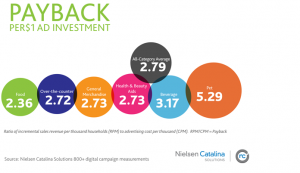When business people start small businesses, waste disposal and management is usually at the bottom of the list of priorities. But, all businesses make garbage and it has to go somewhere. So, where does it go on trash night? Here’s how to be more efficient and save money.
Have A Waste Management Plan
The worst way to handle your company’s waste is by chance. Have a plan and stick to it. If you don’t have a waste management company coming to your place of business every week, it’s time to hire one. If your city handles the trash removal, make sure that you’re setting your trash out on trash day, separating the recyclables in the appropriate bins, and cleaning up after the trash man comes.
Reuse On A Small Scale
Can you reuse things in the office?
One of the biggest wastes in the modern office is paper. So much paper is printed and thrown away. Can your office go paperless, or at least semi-paperless? Sometimes, it’s difficult to cut down on the amount of paper used because regulation requires it, your vendors don’t have electronic systems set up to handle paperless communication, or because your customers demand hard copies of everything.
But, are there interoffice communications that you can handle via email or text, possibly an internal chat system, rather than paper memos?
Maybe you could use both sides of legal-sized printer paper whenever possible.
What about used up paper in the office that has no other purpose? For example, what if you have used envelopes and paper that’s already printed on one side? Can you reuse these papers for impromptu note-taking?
Finally, do a waste audit. There are entire companies out there that will audit your paper (and other office supply) use to tell you how much you’re wasting every month. They will also give you recommendations to cut down or eliminate waste.
This is more than just environmentally friendly. It’s savvy business. Every area where you can cut waste, is money saved for more meaningful projects, like marketing and R&D.
Reduce Hazardous Waste
Hazardous waste is waste that is dangerous either to humans, the environment, or both. It can be by-products of everyday consumer goods. For example, cleaning fluids, pesticides, asbestos products, and petroleum products are all hazardous waste that must be disposed of in a very specific manner.
Some waste management companies don’t have the expertise or resources to properly deal with these types of wastes, meaning you have to hire in experts capable of cleaning these things up.
Of course, reducing hazardous waste is preferable, but if you can’t do that, then make sure you hire specialized waste management companies that can dispose of your waste properly in accordance with the law.
Recycle When Possible
For all other types of waste, waste that is not specifically hazardous, you should try to recycle it. Paper, plastic, and glass are all recyclable materials, as are tin and aluminium and some other metals.
When waste is collected from your company, there are several options you have.
First, you can separate the waste yourself. This is usually the most economical option, especially if you hire a private waste management company. Some private waste management companies don’t have a paid separation option so that might be your only option.
If your waste management company does offer this as an add-on service, don’t pay for it unless you really don’t have the time or staff to dedicate to sorting.
As for specific waste disposal, there are usually several grades of trash and options for you to choose from, other than recycling:
Landfill waste:
This waste is destined for the landfill. It can’t be recycled and there is no other known use for this type of waste. Some materials, household waste, construction materials, and demolition or hazardous waste fits into this category.
Combustion or incineration:
Some waste can be burned. This type of waste treatment reduces the total volume of waste by reducing it to ash. Waste is burned in a controlled manner and is sometimes used as a source of electricity.
Composting:
Some types of organic waste can be used for composting. The material needs to be able to be broken down into organic matter. Composting turns organic material into what is essentially dirt. This material can then be spread over land, returning nutrients to the soil, improving soil fertility.
Regardless of the exact waste treatment options open to you, you should make a plan today for your business.
(146)







